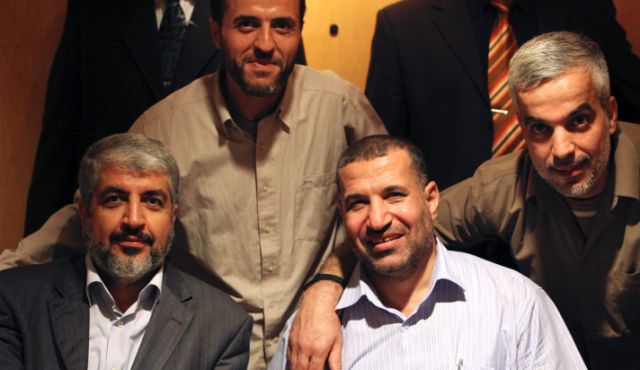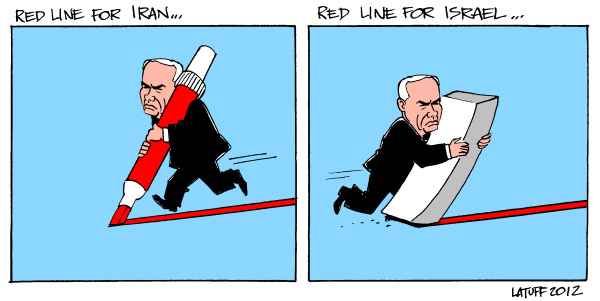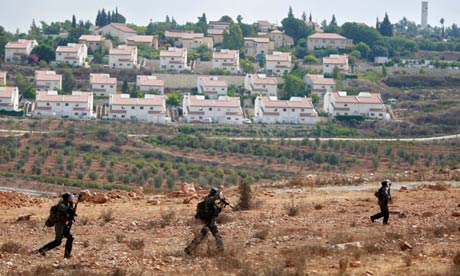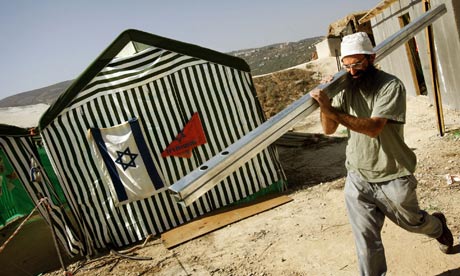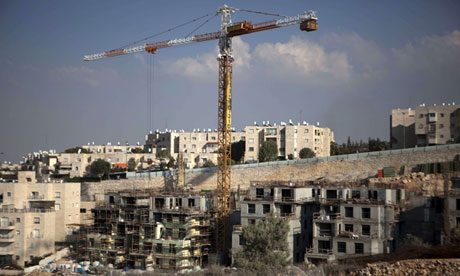EDITOR: The Netanyahu election war is raging on, and the world, as usual, does nothing

So another war is started by Israel on Gaza and Palestine, with the ‘international community’ doing its best to look elsewhere. The newly elected Hussein Obama is otherwise busy, with stopping the PA from putting a resolution before the UN assembly, and the EU is taking its time in upgrading Israeli-EU relations to an all-time high, in return for Israel’s settlement policy, one assumes, as they are now importing 100 times more from the settlements than from Palestine! History will judge the twisted and hypocritical position taken by the west towards the people of Palestine, and especially the almost two million prisoners in the Gaza open prison, where they are isolated and incarcerated by Israel, with no contact with the outside world. None of the Israeli atrocities would have been possible fora single hour, if the Israel was not supported by the west totally, uncritically and unquestioningly.
In the meantime, Israeli fascism marches on, with more and more legislation of the Nuremberg kind being passed every day. Below you can read about the funding of schools relative to their ‘contribution’ to enlisting in the Army of Occupation. All this legislation and regulation is accepted by the WHOLE Jewish political scene in Israel, with the so-called left being in total hock to Netanyahu, and its leader, Yachimowich, trying to court the settlers as hard as she can. If she is a socialist, she must be a National Socialist.
Of the articles below, most have been written by terrified liberal Zionists in Israel, and hence do not represent my views; they are brought here as part of establishing the main theme of the blog today – the swift move towards fully-fledged fascism of the Israeli polis. This is noted with growing fear by many in Israel, but it is just too late – they should have seen this coming decade ago, when they did nothing about the continued occupation and its iniquities. For decades they felt that the occupation is nothing to do with them – they maybe did not like it, but could live with it; now the roof is indeed coming down on their heads, combining fascism and crazed religious nationalism, and they are too petrified to do anything about it. Netanyahu was always an artist of using fear.
Washington Post front page: Washington Post
The winter of Israel’s descent from democracy: Haaretz
Every person and party that is not anti-democratic must wake up and join the fray. Including, of course, the Labor Party.
By Sefi Rachlevsky | Nov.14, 2012
Naftali Bennett’s victory in the primary held by Habayit Hayehudi constitutes a continuation of the earthquake. The latest public opinion polls give his party’s joint slate with National Union 13 Knesset seats. That was not a typographical error; seven seats are expected to move from Likud to the religious parties.
Bennett made sure that half his slate would be picked by three rabbis, headed by Dov Lior. He cooperates gladly with the rabbi who ruled that Baruch Goldstein, who massacred 29 Muslim worshipers at Hebron’s Cave of the Patriarchs in 1994, is “holier than all the martyrs of the Holocaust”; the rabbi whom religious Zionist Rabbi Yoel Bin-Nun once named as the source of a ruling that the Jewish laws of rodef and moser (which allow a person to kill someone who is trying to kill him ) applied to Yitzhak Rabin, thus leading to his murder; the rabbi whom Menachem Livni, head of the Jewish terror underground of the 1980s, said had sent him out to murder Arabs. The rabbi who endorsed the book “Torat Hamelekh: The Laws of Killing non-Jews” will rule the party that seems likely to be the second-largest in Prime Minister Benjamin Netanyahu’s next coalition.
Nor are Lior and Bennett alone. The ultra-Orthodox Shas party is expected to win at least 12 Knesset seats, while United Torah Judaism, another ultra-Orthodox party, is expected to win six. Am Shalem, the new party of Shas MK Chaim Amsellem, will win votes from secular Israelis who are unaware of the political positions that will lead him to join National Union. In short, the extremist religious parties are expected to have more than 30 MKs in the next Knesset.
It doesn’t stop there. More than half of registered Likud members are religiously observant, and a majority of them are extremists. Moshe Feiglin and around half a dozen more Jewish extremists are expected to be on the joint Likud-Yisrael Beiteinu ticket. Yesh Atid chairman Yair Lapid, whose late father Yosef “Tommy Lapid” was a champion of secular Israelis, is putting up a rabbi as his party’s candidate for education minister – a rabbi who is less extreme, but who still wants to “fix” homosexuals and dreams of a state governed by halakha (Jewish law ).
Altogether the next Knesset is expected to include around 40 MKs who want a halakha state. The vast majority of them also hold racist and anti-democratic views.
Nor are they alone: “Likud-Beiteinu” will hold more than 30 Knesset seats. The political implications of the two parties’ merger have already been dissected, but too little has been said about Likud’s being swallowed up in an anti-democratic sea. Thus we are looking at a Knesset in which around 70 of the 120 seats are upholstered in khaki.
The Knesset is Israel’s legislature. The outgoing Knesset also discussed social-welfare and defense issues but its main role was legislating, and what it mainly legislated was a raft of anti-democratic laws. In most cases bills that rode roughshod over democracy passed their first reading by a large majority. It was only after public figures outside the Knesset sounded the alarm that disaster was averted.
The outgoing Knesset contained a handful of people who tried to mitigate the damage. Knesset Speaker Reuven Rivlin (Likud ), the humanist Shlomo Molla (Kadima ), Eitan Cabel (Labor ), Meretz MKs led by Zahava Gal-On; Dov Khenin and Mohammmed Barakeh (Hadash ). A handful will be insufficient in the next Knesset; the threat that has risen up to destroy Israeli democracy is too great.
In “The World of Yesterday” Stefan Zweig did a marvelous job of describing the wonderful summer of 1914. How sweet it was. How preoccupied people were with their own affairs. How even after Europe embarked on the suicidal process that led to two world wars, those leaving for the battlefield sang that they would be home by Christmas.
Israelis would do well to remember this winter. It may be our last winter as a democracy.
Worst of all is the fact that this existential threat has thus far been gathering force unopposed. The camp that is supposed to try to stop this evil is busy with its own affairs – as if these were ordinary times, as if the personal were everything.
This is the time to ring all the warning bells. Any deed that could possibly be done to wake the public from its daydreams before disaster strikes is an honor to perform: handing out bumper stickers in the street, holding parlor meetings and demonstrations, influencing the political system, anything that might help. The only shame is in standing on the sidelines. Losing is permissible. But to lose the battle for democracy without even a fight is an unpardonable sin.
Every person and party that is not anti-democratic must wake up and join the fray. Including, of course, the Labor Party. The party behind Israel’s Declaration of Independence, now being trampled; the party whose leader was murdered by the anti-democratic, racist forces that oppose territorial withdrawals and that now threaten to take over Israel, cannot stand on the sidelines.
It’s worth taking a look at Bennett’s gleaming smile as he says that there will never be peace here, that almost 400,00 settlers are what matters most. Look at his intention: for the Arabs to submissively accept their current situation, in which they are deprived of citizenship, a situation of de facto apartheid. Look, and remember why that gleaming smile looks familiar. Remember, and take action.
Recipe for Labor’s fall: Haaretz
Shelly Yacimovich is correct in claiming that the Labor Party, which she heads, was never a left-wing party. The occupation has eaten away at everything here that was good.
By Zeev Sternhell | Nov.15, 2012
Shelly Yacimovich is correct in claiming that the Labor Party, which she heads, was never a left-wing party. Indeed, it was one big jumble in which all kinds of positions and opinions found a place, and after the Six Day War, it lost its direction completely and became a helpless entity. Yet even before the Six Day War, beginning with the establishment of the state, its famous pragmatism has been nothing but blatant opportunism that blinded its eyes. Since it did not take its own ideology seriously, the Labor Party was convinced that the various sorts of right-wing parties would also betray their principles.
Among the former prime ministers, Golda Meir’s expression “socialism for our time” very soon turned into a joke, while what David Ben-Gurion called “the rule of the workers’ movement” was nothing more than a creation of dependence between the workers and the power structure of the Histadrut labor federation and the Mapai party. Another prime minister, Menachem Begin, waited 30 years until he won the elections, but did not give up the principle of Jewish sovereignty west of the Jordan River; yet 35 years after the political upheaval of 1977, the Labor Party is still wandering in the desert without a compass. For this it can thank Shimon Peres, the party’s well-known deserter, and Ehud Barak, who instead of continuing from the point where Yitzhak Rabin stood at the time he was assassinated, returned to Meir’s blueprint from the Yom Kippur War.
For many long years, the Labor Party has believed that since the nation has moved toward the right, it must slide down the slippery slope with it. Instead of trying to curb the process, it merely accelerated it. Its leaders did not think of the possibility that in addition to ideological weakness, the reason for the continual defeats at the poll since 1977 lay with them – their lack of courage, of intellectual integrity and of inner conviction.
Now Yacimovich is trying to follow in their footsteps. According to her way of thinking, if she is obsequious toward the settlers, she will be received with open arms by the right, and the Likud voters will swarm to her tent. It did not cross her mind that her end will be the same as that of the hero of the Elon Moreh settlement, Peres. Victory in elections can be achieved when one presents an ideological and personal alternative that is moral and worthy of governing, and not when one presents a copy of something else and tries to flatter people.
But the truth of the matter is that Yacimovich and Lapid are not fighting over the votes of right-wing Likud supporters, but rather over the reservoir of floating votes from the Kadima party. The real struggle is within the center bloc. As it usually happens here, the elections will be about the next war and the influence it will have on the territories. A substantial change will take place only if another quarter of a million Israelis begin to realize that there is a connection between the struggle against neoliberalism and on behalf of a just society, and doing away with the occupation.
“Socially oriented” people like Yacimovich can be found in abundance on the right of the political map too – bringing down the price of food, cheap mortgages, and annexing the settlements go together in their minds. From Labor, too, we have heard that there is consensus over the settlements. That was the reason why after Rabin’s assassination, it was nothing more than a shadow of a ruling party. Therefore, divorcing itself from the settlement enterprise is, for the Labor Party, not only the right thing to do but also a matter of survival.
When compared with Western countries, Israeli politics is so distorted that in wide swaths of the Israeli public, the word “left” has become a derogatory term. Why is it that in the whole of the Western world, from Oslo to Buenos Aires (but excluding the United States ), authentic socialist and social-democratic parties, both in power and in the opposition, are proud to carry a left-wing banner, while here it is only Meretz that bears that flag aloft?
The occupation has eaten away at everything here that was good. Social democracy does not tolerate selective justice, and the fight against neoliberalism is not just over bread, but also over the dignity of man. That is the real, proper consensus – and without it, the old-time Zionism will turn into a passing episode.

